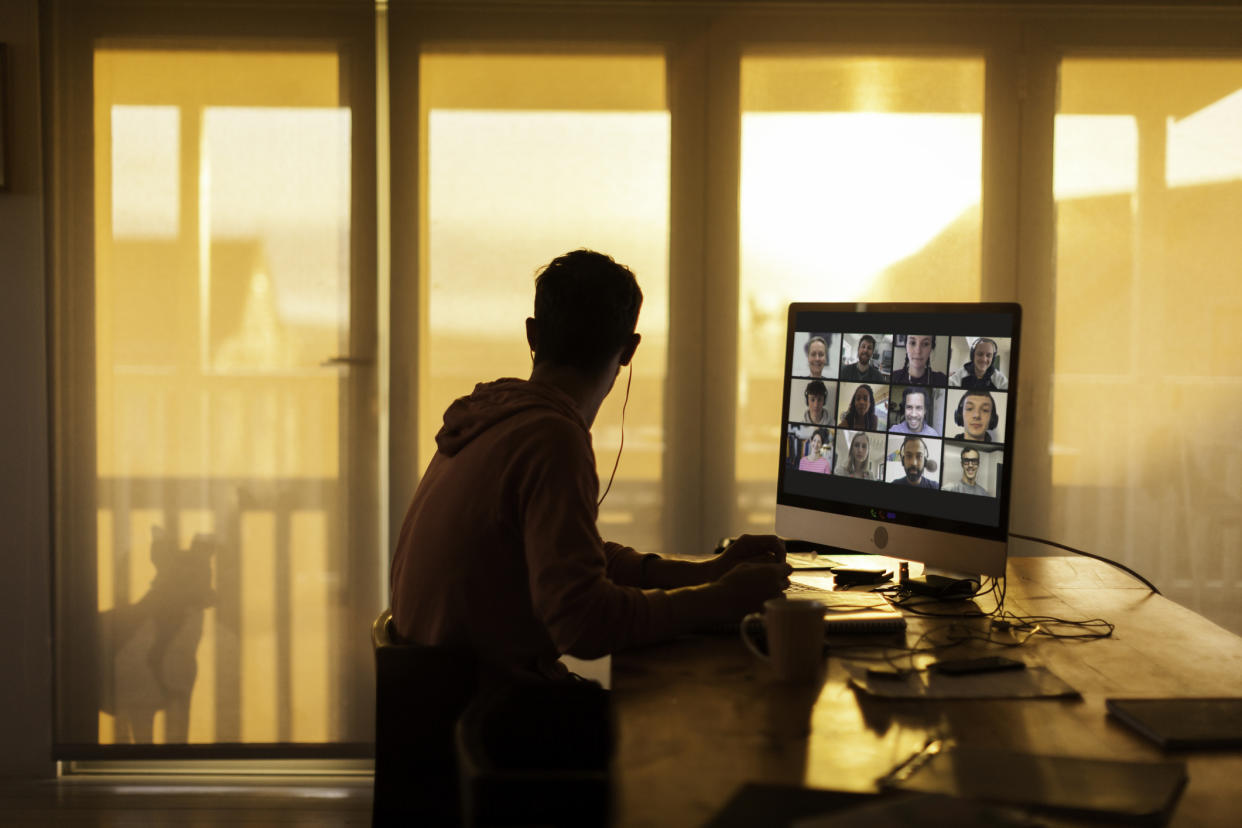Adults spending more than a quarter of their day online: what effect is this having on our health?

UK adults are spending a quarter of their lives online, new figures have revealed.
With coronavirus lockdown seeing us turning to technology to keep in touch with friends and family, it’s hardly surprising that Internet use has increased across the UK.
But, a new study by Ofcom has shed light on just how much of our time we’re spending virtually right now.
The broadcast regulator said its latest Online Nation report for April – the height of the Covid-19 lockdown in the UK – found adults spent an average of just over four hours a day online.
And while we can’t deny we were enjoying a good scroll pre-lockdown, the figure is well up from the 3.5 hours recorded in September last year.
Read more: Pets ‘crucial to owners’ morale’ while WFH during lockdown
It’s likely we’ve seen a switch in the type of online services we’ve been spending time on, with communications services such as TikTok and Zoom seeing unprecedented growth as people sought out new ways to stay connected.
According to the report, UK visitors to video-sharing app TikTok have more than doubled, from 5.4 million in January to 12.9 million in April.
The proportion of UK adults online making video calls has also doubled during lockdown, with seven in 10 people now using such services at least weekly.

This increase has been most noticeable among older internet users – with the proportion of over-65s making at least one video call a week jumping from 22% in February, to 61% in May.
But Ofcom said the biggest increase was seen on video conferencing platform Zoom, which soared from 659,000 UK users in January to 13 million in April.
The video platform has been one of the most popular services globally during the pandemic, as millions looked for ways to stay connected while working and studying from home, as well as being able to catch up with friends and family.
The report also highlighted a change in communication habits, with people moving away from established forms of communication, such as landline calls and SMS messages.
Read more: Ways to boost your concentration and mental focus while working from home
Instead, platforms such as WhatsApp and Facebook Messenger have become more regularly used than text message or email, while online voice calls on platforms such as WhatsApp are now nearly as popular as mobile phone calls.
Commenting on the findings Yih-Choung Teh, Ofcom’s director of strategy and research said: “Lockdown may leave a lasting digital legacy. Coronavirus has radically changed the way we live, work and communicate online, with millions of people using online video services for the first time.
“As the way we communicate evolves and people broaden their online horizons, our role is to help ensure that people have a positive experience, and that they’re safe and protected.”
What increased time spent online is doing to our health
According to Babylon Health’s GP, Dr Keith Grimes spending more time on our screens has a number of negative impacts on our health.
“Much of the effect of screen time comes from the fact that people don’t do more healthful activities as a result - they sleep and exercise less, and they eat more,” he explains. “Several studies in adults and children show an association between increased screen time and obesity.”
Dr Grimes says the light from computer and TV screens contains blues which disrupt melatonin production in the body.
“Melatonin is a chemical that is important to help regulate the sleep cycles. The theory is that screen time in the evening and night disrupts this normal cycle, and insomnia can result.”
This can also have a knock-on effect on our behaviour, concentration, and mood.
Read more: The stretches to ease your achy back and neck from WFH

But there are measures we can adopt that could help to counteract the impacts of too much screen time.
“If screen time is having negative effects, it makes sense to make some changes,” Dr Grimes says.
“I advise avoiding using devices with screens in the hour before bed. Make sure you take regular breaks and, if working from home, make sure your work space is optimised to reduce neck and shoulder pain.”
Dr Grimes also suggests using the in-built tools on phones and tablets to reduce the blue light emitted in evening hours, and set limits on the time you spend with certain apps or games consoles.
“If you're finding that your anxiety is high, consider stepping away from social media for a while to decrease that source of stress,” he adds.
“If you find this difficult or have any other health worries do speak to your doctor who can help advise you.”
Additional reporting PA.



